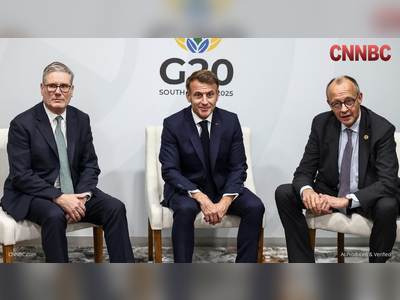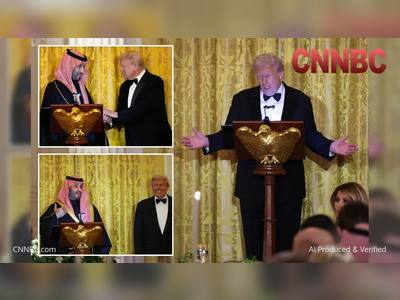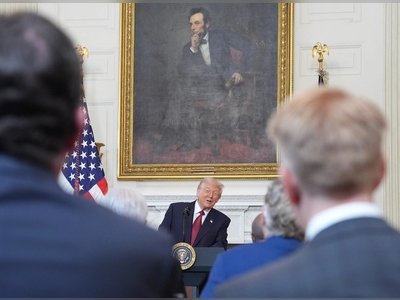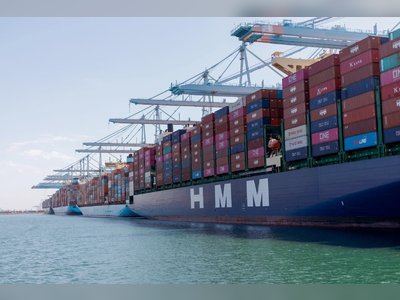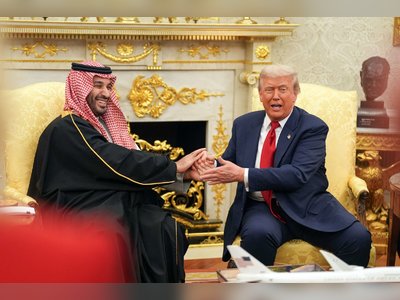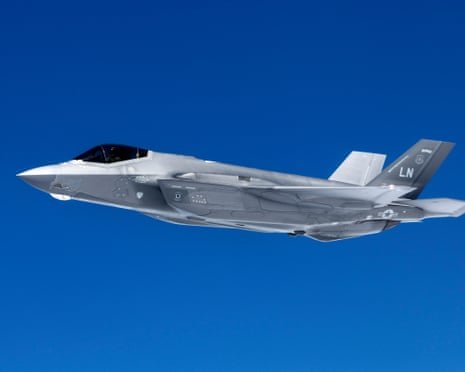
Australia Faces Human-Rights Scrutiny Over Australian-Made F-35 Parts After U.S. Sale to Saudi Arabia
Release of advanced fighter jets to Riyadh raises concerns that Australian suppliers may be tied to bombing operations despite minimal oversight
Australia is confronting growing criticism over its role in manufacturing parts for the F-35 stealth fighter jet, after the U.S. administration announced a sale of the aircraft to Saudi Arabia.
With more than seventy Australian firms contracted to produce or sustain components for the F-35 and over seven hundred “critical pieces” made in Victoria alone, questions are being raised about the implications of supplying equipment that may be used in conflict zones.
Peace and arms-control groups argue that the Australian government lacks visibility or control over where those components ultimately go—even after they leave Australian soil.
The Department of Defence has told a Senate committee that Australia does not direct the export of F-35 parts, which are managed by the U.S. manufacturer under a global supply-chain arrangement.
Civil-society advocates contend that this creates a risk of complicity if the jets are used in ways that breach international law.
Their concerns come amid alarm over Saudi Arabia’s human-rights record, especially in its ongoing military campaign in Yemen, where air-strikes have caused substantial civilian casualties.
Analysts warn that Australia’s involvement in the F-35 supply chain could conflict with its obligations under the Arms Trade Treaty, which bars export of weapons or associated items when there is a clear risk of them being used to violate international humanitarian law.
The proposed U.S.–Saudi deal, which would allow Riyadh to acquire up to 48 F-35s as part of a broader strategic-defence package, has introduced further dimensions of strategic risk—particularly fears of technology transfer to China through Saudi links, and concerns that the deal may erode Israel’s qualitative military edge in the region.
For Australia, the sale casts a spotlight on national export-control arrangements, industrial partnerships and the ethics of participating in high-end global weapons programmes.
While Australian officials emphasise that export permits are required for parts manufactured domestically, they have not provided reassurance that those parts will not be integrated into jets sold to states with questionable human-rights records.
The broader F-35 procurement and supply-chain ecosystem remains deeply interconnected—and for Australia, the emerging debate highlights the tension between industrial participation in global defence systems and the imperatives of moral accountability.
With more than seventy Australian firms contracted to produce or sustain components for the F-35 and over seven hundred “critical pieces” made in Victoria alone, questions are being raised about the implications of supplying equipment that may be used in conflict zones.
Peace and arms-control groups argue that the Australian government lacks visibility or control over where those components ultimately go—even after they leave Australian soil.
The Department of Defence has told a Senate committee that Australia does not direct the export of F-35 parts, which are managed by the U.S. manufacturer under a global supply-chain arrangement.
Civil-society advocates contend that this creates a risk of complicity if the jets are used in ways that breach international law.
Their concerns come amid alarm over Saudi Arabia’s human-rights record, especially in its ongoing military campaign in Yemen, where air-strikes have caused substantial civilian casualties.
Analysts warn that Australia’s involvement in the F-35 supply chain could conflict with its obligations under the Arms Trade Treaty, which bars export of weapons or associated items when there is a clear risk of them being used to violate international humanitarian law.
The proposed U.S.–Saudi deal, which would allow Riyadh to acquire up to 48 F-35s as part of a broader strategic-defence package, has introduced further dimensions of strategic risk—particularly fears of technology transfer to China through Saudi links, and concerns that the deal may erode Israel’s qualitative military edge in the region.
For Australia, the sale casts a spotlight on national export-control arrangements, industrial partnerships and the ethics of participating in high-end global weapons programmes.
While Australian officials emphasise that export permits are required for parts manufactured domestically, they have not provided reassurance that those parts will not be integrated into jets sold to states with questionable human-rights records.
The broader F-35 procurement and supply-chain ecosystem remains deeply interconnected—and for Australia, the emerging debate highlights the tension between industrial participation in global defence systems and the imperatives of moral accountability.



